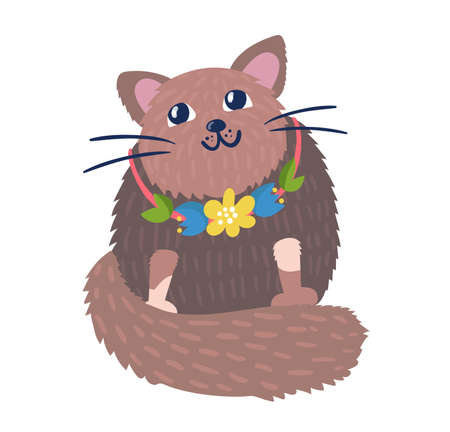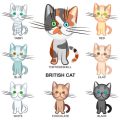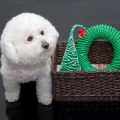Understanding Your Small Pet’s Unique Needs
Choosing the right accessories and supplies for your hamster, guinea pig, or gerbil starts with understanding their unique requirements. Each species has distinct preferences when it comes to habitat, diet, and exercise routines. By recognising these differences, you can create a safe, enriching environment that supports your small pet’s wellbeing.
Habitat Preferences
Small pets thrive in environments tailored to their natural behaviours. For example, hamsters enjoy burrowing and require enclosed spaces with tunnels. Guinea pigs need ample floor space to roam, while gerbils are highly active diggers who benefit from deep bedding. The table below summarises key habitat needs:
| Pet | Ideal Habitat | Bedding Preference | Space Required |
|---|---|---|---|
| Hamster | Enclosed cage with tunnels and hideouts | Paper-based or aspen shavings | Minimum 80x50cm floor space |
| Guinea Pig | Spacious pen with open areas and shelters | Dust-free hay or paper bedding | Minimum 120x60cm for two pigs |
| Gerbil | Tall tank with deep substrate for digging | Sawdust or paper-based bedding (deep layer) | Minimum 75x40cm per pair |
Dietary Needs
A balanced diet is crucial for keeping your small pet healthy. Hamsters are omnivores and enjoy a mix of grains, seeds, and occasional protein. Guinea pigs require daily fresh vegetables and vitamin C-rich foods, as they cannot produce this vitamin themselves. Gerbils do well on seed mixes with some fresh fruit and vegetables as treats. Always provide clean, fresh water in a suitable bottle or bowl.
Exercise Habits & Enrichment
Regular exercise helps prevent obesity and boredom-related behaviours. Hamsters benefit from running wheels (solid surface), climbing toys, and tunnels. Guinea pigs prefer gentle floor time outside the cage and interactive toys like chewable tunnels. Gerbils are energetic and need opportunities to dig, climb, and gnaw on safe materials.
Summary Tips for UK Pet Owners:
- Select cages that comply with RSPCA guidelines for size and safety.
- Avoid cedar or pine bedding, as these can be harmful.
- Choose food brands approved by UK animal welfare organisations.
- Ensure all accessories are chew-proof and non-toxic.
- Create a routine for cleaning habitats to promote hygiene.
2. Essential Accessories for a Comfortable and Enriching Home
Creating a safe, comfortable, and stimulating environment is vital for the health and happiness of your hamster, guinea pig, or gerbil. Choosing the right accessories ensures your small pet enjoys a high standard of living that meets both their physical and psychological needs. Here are the must-have items to consider, specifically tailored for the UK market:
Cages: Safety and Space Matter
Adequate space is crucial for small pets to move around freely. In the UK, it is recommended to choose cages with solid bases and bar spacing appropriate for each species. Avoid wire flooring, as it can harm delicate feet. Ensure there’s enough room for exercise and accessories.
| Pet Type | Minimum Cage Size (cm) | Bar Spacing |
|---|---|---|
| Hamster | 80 x 50 | <1 cm |
| Guinea Pig | 120 x 60 | N/A (Solid Sides Preferred) |
| Gerbil | 75 x 40 | <1 cm |
Bedding: Comfort and Hygiene
Choose bedding made from natural materials like paper or aspen shavings, which are widely available in UK pet shops. Avoid pine or cedar wood shavings as they can be harmful. Good bedding absorbs moisture and controls odour, keeping your pet’s home fresh.
Hides: Safe Spaces to Retreat
All small pets need a hideaway to feel secure. Opt for wooden, ceramic, or hard plastic hides that are easy to clean and free from sharp edges. For added enrichment, offer multiple hides in various shapes and sizes within the enclosure.
Water Bottles & Feeding Dishes: Practical and Hygienic Choices
Select sturdy water bottles with non-drip nozzles designed for small pets; ensure they’re positioned at the correct height. Heavy ceramic feeding dishes prevent tipping and are easy to wash—essential for maintaining hygiene in your pet’s home.
Quick Reference: Accessory Material Guide
| Accessory Type | Recommended Material (UK Market) | Why? |
|---|---|---|
| Cage Base & Accessories | Plastic/Wood/Metal (Powder-Coated) | Durable, easy to clean, safe for pets |
| Bedding | Paper/Aspen Shavings/Hemp Fibre | Absorbent, dust-free, gentle on paws |
| Hides & Shelters | Ceramic/Wood/Hard Plastic | Non-toxic, chew-resistant, secure retreats |
| Dishes & Bottles | Ceramic/Glass/Plastic (BPA-Free) | Stable, hygienic, easy to sterilise |
Choosing Accessories with Your Pet’s Needs in Mind
Selecting the best accessories means considering not just looks but safety standards, size suitability, and ease of cleaning—especially important in the UK where weather conditions can impact humidity and hygiene in enclosures. Always purchase products from reputable British suppliers who comply with local animal welfare regulations.

3. Choosing Safe and Stimulating Toys
Toys are not just for entertainment; they play a vital role in supporting both the mental and physical health of small pets such as hamsters, guinea pigs, and gerbils. Appropriate toys help prevent boredom, encourage natural behaviours like gnawing and burrowing, and provide essential exercise. Selecting the right type of toy for your pet’s species is key to ensuring their safety and well-being.
The Importance of Toys for Small Pets
Small pets are naturally curious and active creatures. Without sufficient stimulation, they can develop unwanted behaviours or even suffer from stress-related health issues. Toys offer an outlet for physical activity and mental engagement, helping to keep your furry friends happy and healthy.
Recommended Toy Options by Species
| Species | Suitable Toys | Benefits |
|---|---|---|
| Hamster | Exercise wheels (solid surface), tunnels, chew sticks, hideaways | Encourage running, chewing, and burrowing instincts; promote dental health |
| Guinea Pig | Tunnels, hay balls, wooden blocks, fleece snuggle sacks | Stimulate exploration and gnawing; reduce stress through hiding spaces |
| Gerbil | Cardboard tubes, sand baths, climbing structures, wooden chews | Support digging and climbing behaviour; improve dental condition |
Tips on What to Avoid When Choosing Toys
- Avoid plastic toys with small parts: These can be easily chewed off and swallowed, posing a choking hazard.
- No painted or varnished wood: Paints and varnishes can contain toxic chemicals harmful to pets.
- Skip metal toys with sharp edges: Sharp or poorly constructed toys could cause injuries.
- Avoid exercise balls for rodents: Especially common for hamsters, these are not recommended as they restrict normal movement and can lead to stress or injury.
- No cotton wool or fluffy bedding as toys: These materials can cause intestinal blockages if ingested.
A Few More Tips for British Pet Owners
When shopping at UK-based pet shops or online retailers, look for products approved by organisations like the RSPCA or those labelled as non-toxic and pet-safe. Always supervise your pet when introducing new toys and regularly check them for signs of wear. By providing a variety of safe and stimulating toys tailored to your pet’s needs, you’ll foster both their happiness and health in your home.
4. Selecting Pet-Safe Cleaning and Care Supplies
Ensuring a clean and hygienic environment is essential for the wellbeing of your hamster, guinea pig, or gerbil. When choosing cleaning products and grooming tools, it’s crucial to select items that are safe for small pets and align with UK environmental standards. Not only does this protect your pet from potential harm, but it also helps reduce your environmental footprint.
Pet-Safe Cleaning Products
Many standard household cleaners contain harsh chemicals that can be toxic to small pets. Instead, opt for cleaners specifically labelled as ‘pet-safe’ or ‘small animal-safe.’ In the UK, several brands offer eco-friendly cleaning solutions that are non-toxic, biodegradable, and free from artificial fragrances or dyes. Always check labels for ingredients and look for certifications such as Cruelty Free International’s Leaping Bunny or the Vegan Society Trademark.
| Product Type | Safe Options | Considerations |
|---|---|---|
| Cage & Accessory Cleaners | Enzyme-based sprays, vinegar-water solutions | Avoid bleach or ammonia; rinse thoroughly after cleaning |
| Bedding Fresheners | Baking soda-based, natural mineral powders | Select unscented, dust-free products to prevent respiratory issues |
| Sterilising Wipes | Alcohol-free, hypoallergenic wipes made for pets | Use only on hard surfaces; avoid direct contact with animals |
Grooming Tools for Small Pets
Hamsters, guinea pigs, and gerbils generally require minimal grooming compared to larger animals. However, appropriate brushes and nail clippers are necessary to keep them healthy and comfortable. Choose grooming tools designed for small animals, ensuring they have soft bristles or gentle edges to prevent skin irritation.
Recommended Grooming Tools:
- Soft-bristled brush: Ideal for removing loose fur and reducing shedding in guinea pigs.
- Nail clippers: Specially designed for small mammals; always cut carefully to avoid injury.
- Dust bath sand: Suitable only for some species (such as certain hamsters); always use sand labelled as safe for small pets.
Environmental Considerations in the UK
When purchasing cleaning and care supplies, consider their impact on the environment. Look for recyclable packaging, refillable containers, and products from companies committed to sustainability. Supporting local UK brands reduces transport emissions and promotes ethical business practices within the country.
By prioritising pet-safe and environmentally responsible cleaning and grooming supplies, you help create a healthier home for your furry companion while supporting broader efforts towards sustainability in the UK.
5. Local and Ethical Shopping Tips in the UK
When it comes to choosing accessories and supplies for your hamster, guinea pig, or gerbil, where you shop is just as important as what you buy. Supporting reputable British pet shops not only helps local businesses but can also ensure higher standards of animal welfare and product quality. Here’s how you can make informed, ethical choices while shopping for your small pet’s needs:
Sourcing from Trusted British Pet Shops
Opt for well-known, established pet shops such as Pets at Home, Jollyes, or independent high street stores with good reputations in your community. These retailers often have knowledgeable staff who can guide you on suitable accessories and proper care. Avoid purchasing from online marketplaces or sellers with unclear sourcing practices.
Supporting Local Businesses
Choosing to buy from local pet shops not only boosts the UK economy but also allows for personalised advice and aftercare support. Many independent stores offer unique or handmade accessories that aren’t available in large chains. Use the table below to compare advantages:
| Local Independent Shops | Large National Chains | |
|---|---|---|
| Personalised Advice | Often excellent | Variable |
| Product Range | Unique/Handmade options | Wide variety |
| Supporting Local Economy | Direct impact | Indirect impact |
| Loyalty Schemes | Occasional offers | Frequent deals & points |
Sustainable and Cruelty-Free Accessories
Select products made from eco-friendly materials such as untreated wood, recycled plastic, or natural fibres. Look for cruelty-free certifications and avoid items made using animal testing or unsustainable practices. Several UK brands focus on sustainability—check labels for details like “biodegradable bedding” or “FSC-certified wood.” Supporting such initiatives helps reduce your ecological footprint and ensures humane treatment of animals during manufacturing processes.
Quick Tips for Ethical Shopping:
- Check for British Small Animal Veterinary Association (BSAVA) approval on products.
- Avoid impulse buys; research brands’ ethical credentials first.
- If unsure about a product’s background, ask shop staff or contact the manufacturer directly.
- Participate in local events or markets dedicated to small pets to discover new ethical suppliers.
Your Choices Matter!
By making mindful decisions when purchasing small pet supplies, you contribute positively to your community and the welfare of all animals involved. Combining health-conscious care with ethical shopping habits ensures a happy, healthy life for your furry companion.
6. Regular Maintenance and Health Monitoring
Keeping your hamster, guinea pig, or gerbil happy and healthy goes beyond choosing the right accessories; it requires ongoing care through regular cleaning, maintenance, and health checks. A well-maintained environment reduces stress for your pet and helps prevent common illnesses. Here’s how you can make routine care part of your weekly schedule:
Cleaning and Maintenance Essentials
Small pets are sensitive to dirty habitats, which can quickly lead to health problems such as respiratory issues or skin irritations. To ensure a clean and comfortable home for your pet, follow these guidelines:
| Task | Recommended Frequency |
|---|---|
| Spot-clean bedding & remove waste | Daily |
| Refresh food & water supplies | Daily |
| Wash food bowls & water bottles | 2–3 times a week |
| Change bedding completely | Weekly (more often if soiled) |
| Deep-clean cage & accessories | Fortnightly |
Monitoring Your Pet’s Health
Regular health checks are crucial for early detection of common issues in hamsters, guinea pigs, and gerbils. Spend time observing your pet daily—changes in behaviour or appearance can be an early warning sign. Here’s what to look out for:
| Health Issue | Signs to Watch For |
|---|---|
| Dental Problems | Difficulty eating, weight loss, drooling, overgrown teeth |
| Mites & Skin Issues | Bald patches, excessive scratching, flaky skin |
| Respiratory Infections | Sneezing, wheezing, discharge from nose/eyes |
| Tummy Troubles | Diarrhoea, bloating, reduced appetite |
If You Notice Something Unusual…
If you spot any of the above signs or other changes such as lethargy or sudden aggression, it’s important to contact your local vet with experience in small animals promptly. Early intervention can make all the difference.
Caring for Your Accessories
Dont forget that even the best-quality accessories need upkeep: check for wear and tear on wheels, hideouts, tunnels, and chew toys. Replace items that become damaged or difficult to clean to maintain a safe environment for your furry friend.
A consistent cleaning schedule and proactive health monitoring not only keep your pet’s habitat fresh but also help you build a trusting relationship with your small companion. By staying attentive and responsive to their needs, you’ll give them the happiest—and healthiest—life possible.


